#12-27-2021
Text

(you’re not even looking at me)
#a softer world#revolutionary girl utena#shoujo kakumei utena#a softer world remix#anthy himemiya#rguedit#utena tenjou#ep: for friendship perhaps#Asw 27#utena and anthy#12 2021
83 notes
·
View notes
Text

Video 📹 clip from YouTube
https://thefratellis.lnk.to/hduafmdlx
youtube
Alive
Remember… there was a question, oh, that she once revered like the itch of the just meets the call of the weird.
#Tait rhymes with hat#Good times#The Fratellis#Alive#Track 12#Deluxe Edition#Official Video#27 April 2022#Half Drunk Under A Full Moon#2021#Instagram#My screenrecording#YouTube
4 notes
·
View notes
Text
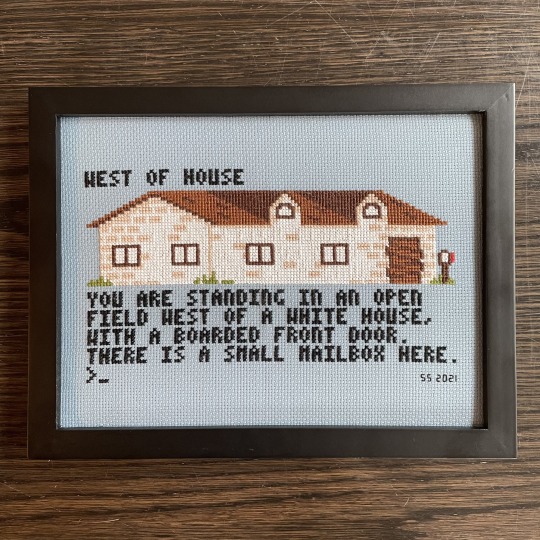

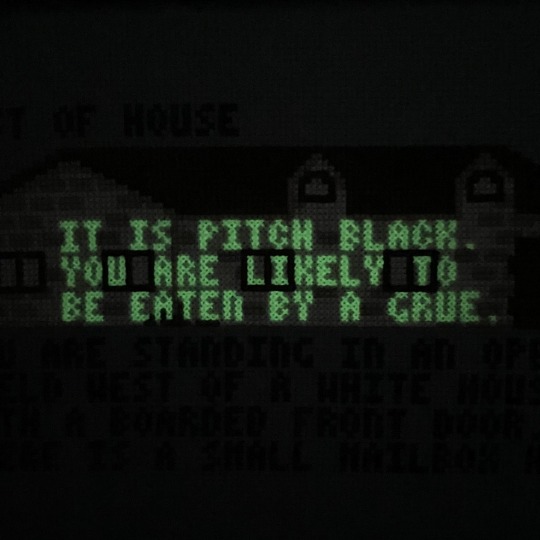
This. Is my pride and joy. A gift for my dad, who played Zork with me when I was a kid, and with his dad when he was a kid. I designed this pattern myself and had a great time puzzling out how to hide the glow in the dark letters!
Buy the pattern here!
Pattern: “West of House” by me
Fabric: 2x1 on 18ct Blue-Grey Aida
Started: 11/27/2021
Finished: 12/25/2021
25K notes
·
View notes
Note
they have a point though. you wouldn't need everyone to accommodate you if you just lost weight, but you're too lazy to stick to a healthy diet and exercise. it's that simple. I'd like to see you back up your claims, but you have no proof. you have got to stop lying to yourselves and face the facts
Must I go through this again? Fine. FINE. You guys are working my nerves today. You want to talk about facing the facts? Let's face the fucking facts.
In 2022, the US market cap of the weight loss industry was $75 billion [1, 3]. In 2021, the global market cap of the weight loss industry was estimated at $224.27 billion [2].
In 2020, the market shrunk by about 25%, but rebounded and then some since then [1, 3] By 2030, the global weight loss industry is expected to be valued at $405.4 billion [2]. If diets really worked, this industry would fall overnight.
1. LaRosa, J. March 10, 2022. "U.S. Weight Loss Market Shrinks by 25% in 2020 with Pandemic, but Rebounds in 2021." Market Research Blog.
2. Staff. February 09, 2023. "[Latest] Global Weight Loss and Weight Management Market Size/Share Worth." Facts and Factors Research.
3. LaRosa, J. March 27, 2023. "U.S. Weight Loss Market Partially Recovers from the Pandemic." Market Research Blog.
Over 50 years of research conclusively demonstrates that virtually everyone who intentionally loses weight by manipulating their eating and exercise habits will regain the weight they lost within 3-5 years. And 75% will actually regain more weight than they lost [4].
4. Mann, T., Tomiyama, A.J., Westling, E., Lew, A.M., Samuels, B., Chatman, J. (2007). "Medicare’s Search For Effective Obesity Treatments: Diets Are Not The Answer." The American Psychologist, 62, 220-233. U.S. National Library of Medicine, Apr. 2007.
The annual odds of a fat person attaining a so-called “normal” weight and maintaining that for 5 years is approximately 1 in 1000 [5].
5. Fildes, A., Charlton, J., Rudisill, C., Littlejohns, P., Prevost, A.T., & Gulliford, M.C. (2015). “Probability of an Obese Person Attaining Normal Body Weight: Cohort Study Using Electronic Health Records.” American Journal of Public Health, July 16, 2015: e1–e6.
Doctors became so desperate that they resorted to amputating parts of the digestive tract (bariatric surgery) in the hopes that it might finally result in long-term weight-loss. Except that doesn’t work either. [6] And it turns out it causes death [7], addiction [8], malnutrition [9], and suicide [7].
6. Magro, Daniéla Oliviera, et al. “Long-Term Weight Regain after Gastric Bypass: A 5-Year Prospective Study - Obesity Surgery.” SpringerLink, 8 Apr. 2008.
7. Omalu, Bennet I, et al. “Death Rates and Causes of Death After Bariatric Surgery for Pennsylvania Residents, 1995 to 2004.” Jama Network, 1 Oct. 2007.
8. King, Wendy C., et al. “Prevalence of Alcohol Use Disorders Before and After Bariatric Surgery.” Jama Network, 20 June 2012.
9. Gletsu-Miller, Nana, and Breanne N. Wright. “Mineral Malnutrition Following Bariatric Surgery.” Advances In Nutrition: An International Review Journal, Sept. 2013.
Evidence suggests that repeatedly losing and gaining weight is linked to cardiovascular disease, stroke, diabetes and altered immune function [10].
10. Tomiyama, A Janet, et al. “Long‐term Effects of Dieting: Is Weight Loss Related to Health?” Social and Personality Psychology Compass, 6 July 2017.
Prescribed weight loss is the leading predictor of eating disorders [11].
11. Patton, GC, et al. “Onset of Adolescent Eating Disorders: Population Based Cohort Study over 3 Years.” BMJ (Clinical Research Ed.), 20 Mar. 1999.
The idea that “obesity” is unhealthy and can cause or exacerbate illnesses is a biased misrepresentation of the scientific literature that is informed more by bigotry than credible science [12].
12. Medvedyuk, Stella, et al. “Ideology, Obesity and the Social Determinants of Health: A Critical Analysis of the Obesity and Health Relationship” Taylor & Francis Online, 7 June 2017.
“Obesity” has no proven causative role in the onset of any chronic condition [13, 14] and its appearance may be a protective response to the onset of numerous chronic conditions generated from currently unknown causes [15, 16, 17, 18].
13. Kahn, BB, and JS Flier. “Obesity and Insulin Resistance.” The Journal of Clinical Investigation, Aug. 2000.
14. Cofield, Stacey S, et al. “Use of Causal Language in Observational Studies of Obesity and Nutrition.” Obesity Facts, 3 Dec. 2010.
15. Lavie, Carl J, et al. “Obesity and Cardiovascular Disease: Risk Factor, Paradox, and Impact of Weight Loss.” Journal of the American College of Cardiology, 26 May 2009.
16. Uretsky, Seth, et al. “Obesity Paradox in Patients with Hypertension and Coronary Artery Disease.” The American Journal of Medicine, Oct. 2007.
17. Mullen, John T, et al. “The Obesity Paradox: Body Mass Index and Outcomes in Patients Undergoing Nonbariatric General Surgery.” Annals of Surgery, July 2005. 18. Tseng, Chin-Hsiao. “Obesity Paradox: Differential Effects on Cancer and Noncancer Mortality in Patients with Type 2 Diabetes Mellitus.” Atherosclerosis, Jan. 2013.
Fatness was associated with only 1/3 the associated deaths that previous research estimated and being “overweight” conferred no increased risk at all, and may even be a protective factor against all-causes mortality relative to lower weight categories [19].
19. Flegal, Katherine M. “The Obesity Wars and the Education of a Researcher: A Personal Account.” Progress in Cardiovascular Diseases, 15 June 2021.
Studies have observed that about 30% of so-called “normal weight” people are “unhealthy” whereas about 50% of so-called “overweight” people are “healthy”. Thus, using the BMI as an indicator of health results in the misclassification of some 75 million people in the United States alone [20].
20. Rey-López, JP, et al. “The Prevalence of Metabolically Healthy Obesity: A Systematic Review and Critical Evaluation of the Definitions Used.” Obesity Reviews : An Official Journal of the International Association for the Study of Obesity, 15 Oct. 2014.
While epidemiologists use BMI to calculate national obesity rates (nearly 35% for adults and 18% for kids), the distinctions can be arbitrary. In 1998, the National Institutes of Health lowered the overweight threshold from 27.8 to 25—branding roughly 29 million Americans as fat overnight—to match international guidelines. But critics noted that those guidelines were drafted in part by the International Obesity Task Force, whose two principal funders were companies making weight loss drugs [21].
21. Butler, Kiera. “Why BMI Is a Big Fat Scam.” Mother Jones, 25 Aug. 2014.
Body size is largely determined by genetics [22].
22. Wardle, J. Carnell, C. Haworth, R. Plomin. “Evidence for a strong genetic influence on childhood adiposity despite the force of the obesogenic environment” American Journal of Clinical Nutrition Vol. 87, No. 2, Pages 398-404, February 2008.
Healthy lifestyle habits are associated with a significant decrease in mortality regardless of baseline body mass index [23].
23. Matheson, Eric M, et al. “Healthy Lifestyle Habits and Mortality in Overweight and Obese Individuals.” Journal of the American Board of Family Medicine : JABFM, U.S. National Library of Medicine, 25 Feb. 2012.
Weight stigma itself is deadly. Research shows that weight-based discrimination increases risk of death by 60% [24].
24. Sutin, Angela R., et al. “Weight Discrimination and Risk of Mortality .” Association for Psychological Science, 25 Sept. 2015.
Fat stigma in the medical establishment [25] and society at large arguably [26] kills more fat people than fat does [27, 28, 29].
25. Puhl, Rebecca, and Kelly D. Bronwell. “Bias, Discrimination, and Obesity.” Obesity Research, 6 Sept. 2012.
26. Engber, Daniel. “Glutton Intolerance: What If a War on Obesity Only Makes the Problem Worse?” Slate, 5 Oct. 2009.
27. Teachman, B. A., Gapinski, K. D., Brownell, K. D., Rawlins, M., & Jeyaram, S. (2003). Demonstrations of implicit anti-fat bias: The impact of providing causal information and evoking empathy. Health Psychology, 22(1), 68–78.
28. Chastain, Ragen. “So My Doctor Tried to Kill Me.” Dances With Fat, 15 Dec. 2009. 29. Sutin, Angelina R, Yannick Stephan, and Antonio Terraciano. “Weight Discrimination and Risk of Mortality.” Psychological Science, 26 Nov. 2015.
There's my "proof." Where is yours?
#inbox#fat liberation#fat acceptance#fat activism#anti fatness#anti fat bias#anti diet#resources#facts#weight science#save
8K notes
·
View notes
Text
How Google’s trial secrecy lets it control the coverage

I'm coming to Minneapolis! Oct 15: Presenting The Internet Con at Moon Palace Books. Oct 16: Keynoting the 26th ACM Conference On Computer-Supported Cooperative Work and Social Computing.

"Corporate crime" is practically an oxymoron in America. While it's true that the single most consequential and profligate theft in America is wage theft, its mechanisms are so obscure and, well, dull that it's easy to sell us on the false impression that the real problem is shoplifting:
https://newrepublic.com/post/175343/wage-theft-versus-shoplifting-crime
Corporate crime is often hidden behind Dana Clare's Shield Of Boringness, cloaked in euphemisms like "risk and compliance" or that old favorite, "white collar crime":
https://pluralistic.net/2021/12/07/solar-panel-for-a-sex-machine/#a-single-proposition
And corporate crime has a kind of performative complexity. The crimes come to us wreathed in specialized jargon and technical terminology that make them hard to discern. Which is wild, because corporate crimes occur on a scale that other crimes – even those committed by organized crime – can't hope to match:
https://pluralistic.net/2021/10/12/no-criminals-no-crimes/#get-out-of-jail-free-card
But anything that can't go on forever eventually stops. After decades of official tolerance (and even encouragement), corporate criminals are finally in the crosshairs of federal enforcers. Take National Labor Relations Board general counsel Jennifer Abruzzo's ruling in Cemex: when a company takes an illegal action to affect the outcome of a union election, the consequence is now automatic recognition of the union:
https://pluralistic.net/2023/09/06/goons-ginks-and-company-finks/#if-blood-be-the-price-of-your-cursed-wealth
That's a huge deal. Before, a boss could fire union organizers and intimidate workers, scuttle the union election, and then, months or years later, pay a fine and some back-wages…and the union would be smashed.
The scale of corporate crime is directly proportional to the scale of corporations themselves. Big companies aren't (necessarily) led by worse people, but even small sins committed by the very largest companies can affect millions of lives.
That's why antitrust is so key to fighting corporate crime. To make corporate crimes less harmful, we must keep companies from attaining harmful scale. Big companies aren't just too big to fail and too big to jail – they're also too big for peaceful coexistence with a society of laws.
The revival of antitrust enforcement is such a breath of fresh air, but it's also fighting headwinds. For one thing, there's 40 years of bad precedent from the nightmare years of pro-monopoly Reaganomics to overturn:
https://pluralistic.net/ApexPredator
It's not just precedents in the outcomes of trials, either. Trial procedure has also been remade to favor corporations, with judges helping companies stack the deck in their own favor. The biggest factor here is secrecy: blocking recording devices from courts, refusing to livestream the proceedings, allowing accused corporate criminals to clear the courtroom when their executives take the stand, and redacting or suppressing the exhibits:
https://prospect.org/power/2023-09-27-redacted-case-against-amazon/
When a corporation can hide evidence and testimony from the public and the press, it gains broad latitude to dispute critics, including government enforcers, based on evidence that no one is allowed to see, or, in many cases, even describe. Take Project Nessie, the program that the FTC claims Amazon used to compel third-party sellers to hike prices across many categories of goods:
https://www.wsj.com/business/retail/amazon-used-secret-project-nessie-algorithm-to-raise-prices-6c593706
Amazon told the press that the FTC has "grossly mischaracterize[d]" Project Nessie. The DoJ disagrees, but it can't say why, because the Project Nessie files it based its accusations on have been redacted, at Amazon's insistence. Rather than rebutting Amazon's claim, FTC spokesman Douglas Farrar could only say "We once again call on Amazon to move swiftly to remove the redactions and allow the American public to see the full scope of what we allege are their illegal monopolistic practices."
It's quite a devastating gambit: when critics and prosecutors make specific allegations about corporate crimes, the corporation gets to tell journalists, "No, that's wrong, but you're not allowed to see the reason we say it's wrong."
It's a way to work the refs, to get journalists – or their editors – to wreathe bold claims in endless hedging language, or to avoid reporting on the most shocking allegations altogether. This, in turn, keeps corporate trials out of the public eye, which reassures judges that they can defer to further corporate demands for opacity without facing an outcry.
That's a tactic that serves Google well. When the company was dragged into court by the DoJ Antitrust Division, it demanded – and received – a veil of secrecy that is especially ironic given the company's promise "to organize the world's information and make it universally accessible and useful":
https://usvgoogle.org/trial-update-9-22
While this veil has parted somewhat, it is still intact enough to allow the company to work the refs and kill disfavorable reporting from the trial. Last week, Megan Gray – ex-FTC, ex-DuckDuckGo – published an editorial in Wired reporting on her impression of an explosive moment in the Google trial:
https://pluralistic.net/2023/10/03/not-feeling-lucky/#fundamental-laws-of-economics
According to Gray, Google had run a program to mess with the "semantic matching" on queries, silently appending terms to users' searches that caused them to return more ads – and worse results. This generated more revenue for Google, at the expense of advertisers who got billed to serve ads that didn't even match user queries.
Google forcefully disputed this claim:
https://twitter.com/searchliaison/status/1709726778170786297
They contacted Gray's editors at Wired, but declined to release all the exhibits and testimony that Gray used to form her conclusions about Google's conduct; instead, they provided a subset of the relevant materials, which cast doubt on Gray's accusations.
Wired removed Gray's piece, with an unsigned notice that "WIRED editorial leadership has determined that the story does not meet our editorial standards. It has been removed":
https://www.wired.com/story/google-antitrust-lawsuit-search-results/
But Gray stands by her piece. She admits that she might have gotten some of the fine details wrong, but that these were not material to the overall point of her story, that Google manipulated search queries to serve more ads at the expense of the quality of the results:
https://twitter.com/megangrA/status/1711035354134794529
She says that the piece could and should have been amended to reflect these fine-grained corrections, but that in the absence of a full record of the testimony and exhibits, it was impossible for her to prove to her editors that her piece was substantively correct.
I reviewed the limited evidence that Google permitted to be released and I find her defense compelling. Perhaps you don't. But the only way we can factually resolve this dispute is for Google to release the materials that they claim will exonerate them. And they won't, though this is fully within their power.
I've seen this playbook before. During the early months of the pandemic, a billionaire who owned a notorious cyberwarfare company used UK libel threats to erase this fact from the internet – including my own reporting – on the grounds that the underlying research made small, non-material errors in characterizing a hellishly complex financial Rube Goldberg machine that was, in my opinion, deliberately designed to confuse investigators.
Like the corporate crimes revealed in the Panama Papers and Paradise Papers, the gambit is complicated, but it's not sophisticated:
Make everything as complicated as possible;
Make everything as secret as possible;
Dismiss any accusations by claiming errors in the account of the deliberately complex arrangements, which can't be rectified because the relevant materials are a secret.

If you'd like an essay-formatted version of this post to read or share, here's a link to it on pluralistic.net, my surveillance-free, ad-free, tracker-free blog:
https://pluralistic.net/2023/10/09/working-the-refs/#but-id-have-to-kill-you


My next novel is The Lost Cause, a hopeful novel of the climate emergency. Amazon won't sell the audiobook, so I made my own and I'm pre-selling it on Kickstarter!

Image:
Jason Rosenberg (modified)
https://www.flickr.com/photos/underpants/12069086054/
CC BY
https://creativecommons.org/licenses/by/2.0/
--
Japanexperterna.se (modified)
https://www.flickr.com/photos/japanexperterna/15251188384/
CC BY-SA 2.0:
https://creativecommons.org/licenses/by-sa/2.0/
#pluralistic#secrecy#opacity#google#antitrust#trustbusting#wired#working the refs#megan grey#semantic matching
2K notes
·
View notes
Photo



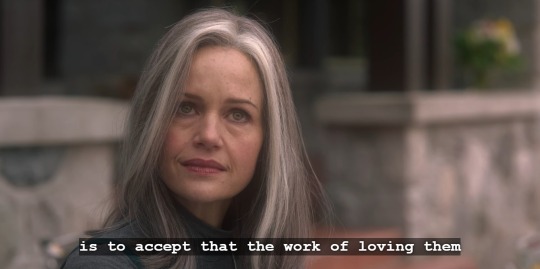
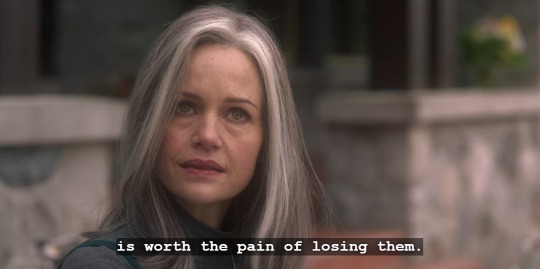
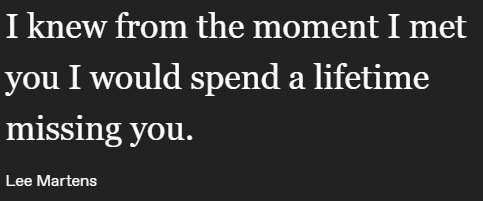



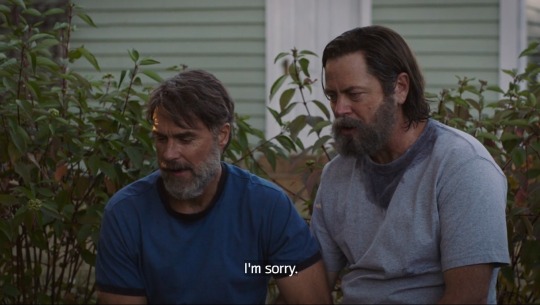

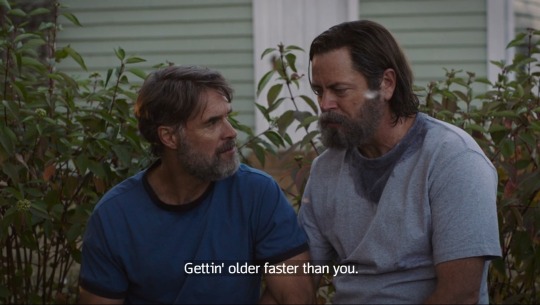



















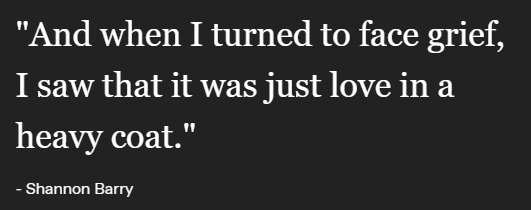






how terrible it is / to love something death can touch
1) anne carson, eros the bittersweet // 2) billy-ray belcourt, a history of my brief body // 3) the haunting of bly manor (2020) // 4) lee martens // 5) albert camus, state of siege // 6) death cab for cutie, i will follow you into the dark // 7) mary zimmerman, metamorphoses // 8) the last of us (2023) // 9) hozier, work song // 10) keaton henson, you // 11) madeline miller, the song of achilles // 12) achilles and the body of patroclus, nikolai ge (1855) // 13) emily brontë, wuthering heights // 14) a star is born, i’ll never love again // 15) halsey, graveyard // 16) evanescence, my immortal // 17) the haunting of hill house (2018) // 18) imagine dragons, wrecked // 19) hadestown, wait for me (intro) // 20) carl andreas august goost, orpheus and eurydice (1826) // 21) the mountain goats, no children // 22) fred elwell, the wedding dress (1911) // 23) p!nk, who knew // 24) shannon barry // 25) jamie anderson // 26) wandavision (2021) // 27) taylor swift, seven // 28) franchesca cox // 29) halsey, ya’aburnee // 30) the lovers of valdaro, found in mantua in 2007
#web weaving#words words words#art#anne carson#billy ray belcourt#the haunting of bly manor#lee martens#death cab for cutie#mary zimmerman#the last of us#hozier#keaton henson#madeline miller#the song of achilles#emily bronte#a star is born#halsey#evanescence#the haunting of hill house#imagine dragons#hadestown#the mountain goats#p!nk#pink#shannon barry#jamie anderson#wandavision#taylor swift#franchesca kox#the lovers of valdaro
6K notes
·
View notes
Text

The clearest picture of the sun ever recorded!
The Sun is not made of fire, its energy comes from nuclear fusion to its heart, where the temperature exceeds 15 million degrees and the pressure is immense. It melts hydrogen atoms, turning them into helium, releasing energy in the form of light and heat in the process.
Every second, it converts 600 million tonnes of hydrogen into 596 million tonnes of helium, the 4 million tonnes of missing matter is converted into energy - a process that will continue for the next 5 billion years.
How it was done;
https://petapixel.com/2021/12/27/photographers-solar-photo-reveals-the-twisted-surface-of-the-sun/
By the way. No claim it was taken by NASA.
Photo cred : Jason Guenzel
20K notes
·
View notes
Text
If the world was ending
Felix x reader. Estranged childhood best friends to lovers. Angst and happy ending. highly recommend listening to If the world was ending while reading :)
Felix has always been there with you, from the moment you've met him when you were 8 years old, until he suddenly no longer was, and you were left to grapple with the consequences of his absence- and those of his return.
cw: description of a car accident, reader has a fear of loud noises.
skz song series masterlist



12 march 2011
Screeching brakes, a jarring collision, glass shattering all around you, shards of it embedding into your tender skin. You are too young to understand it all, but you know it's bad. You are suddenly upside down, the only thing helping you stay put is the seatbelt fastened around you. You didn't really like seatbelts but your mom always insisted on you wearing one.
Your mom, you can't see her face, she's upside down too, and she isn't talking. That's unusual because you're crying and she isn't turning around to comfort you. Someone is screaming outside of your car, and then you are pulled out. You don't know who's touching you, and you want them to stop. Where is your mom? Why did they not pull her out too?
An ambulance approaches you; its loud sirens feel like pine needles drilling into your skull. You try to cover your ears but your hands are covered in blood. The world around you is painted red- the flashing lights of the sirens and the liquid oozing from your cuts. It’s no longer your favorite color.
27 may 2011
You are playing in the playground near your home, waving at your mom from the top of the slide. She's gotten better, she smiles more easily at you now. And you are trying to be a good kid too; you help wash the dishes and you clean your room all by yourself. You don't want your mom to feel sad again and go back to that dreaded hospital.
You slide out, happy giggles leaving your mouth, before climbing up the tiny stairs once again. But as you reach the top, an ambulance rushes by the playground. You don't know what's happening, but you suddenly feel shards of glass on your skin once again. Your hands are shaking as you sit on the floor, curling around yourself in a ball.
"What's wrong?" someone asks and you lift your head tentatively. It's a young boy, he's looking at you worriedly, a tiny pout on his lips.
"I don't like ambulances," you hiccup, burying your head in your knees again.
Suddenly, small hands cover your ears, muffling the shrill sound of sirens. They are warm and sticky from the red popsicle he’s still holding.
"Now you can't hear them," he giggles, his eyes disappearing into moon crescents. Despite your raging fear, a smile finds its way into your lips.
"What's those on your face," you ask with a small voice, pointing at the faint marks dusting his cheeks.
"They're called freckles," he says proudly and you nod.
"They're pretty."
"Thank you!" he grins at you, his hands still covering your ears. The tightness in your chest seems to dissipate slowly before his kind smile- the shadows never stood a chance in front of the sun.
"What's your name?"
"Felix. And you?"
"Yn."
"We should be friends," he beams and you grin back, agreeing wholeheartedly. "We should."
15 november 2021
You are sitting on the grass of that very same playground, Felix still by your side. The night breeze is cooling as it brushes against your bodies, and you're wearing his red sweater. It smells like his cologne and your perfume- an intoxicating scent you've come to memorize by heart.
His nose tip is rosy from the cold, and you can't resist tapping it playfully. "Your nose is pink," you giggle, and he smiles, gently bopping yours in return.
"So is yours."
You look at him as he gazes up at the stars above. You love Felix, it has always been crystal clear to you. From the moment he planted the seed of his friendship into your soul, and throughout the years when it bloomed into something more, bigger than the two of you. It wrapped around your being entirely, binding itself into your every atom, until all you saw is his reflection in you.
And you were tired of treading the line between friendship and something more. You wanted, no craved being with him, your yearning so intense it spilled from you each time he was around. In rosy cheeks and shaky fingers and eyes that soften only when they rest on him- evidence of your love imprinted all upon you.
You take in a deep breath, before laying your hand gently on his cheek, turning his face to meet yours. His eyes widen slightly at the soft touch, and you lean in closer to him. You brush your nose against his, slowly, "to warm it up," you whisper, as his breath hitches in his throat.
He's close, he's so close, you can almost taste the brownies you shared earlier on his lips. You can see his freckles ever so clearly, constellations you often find yourself getting lost in. Your hand is still on his cheek, and you can feel it burning up under your palm.
You close your eyes, as his lips are now just a breath away from yours. It's electrifying- having him so near to the way you've always dreamed, fantasized about. But he needs to be the one to take the jump, all he has to do is lean in a bit, and you'd kiss him. You won't ever let go.
"Lixie...," you choke out, "kiss me."
"I want to." His voice is hoarse with emotion, as if fighting with himself for self-restraint.
"So do it," you ask, swiping your thumb gently across his cheek. Your breaths mingle with one another in a dizzying dance.
"I'm leaving," he says so faintly, you believe for a second that you've imagined it.
"What?" you ask, leaning a bit away to be able to look at him.
"I'm leaving," he repeats, his eyes tightly shut. "We're moving to another country, for my dad's job."
"You're leaving me?" you ask, bewildered.
"I'm not leaving you-"
"But you are. You won't be here anymore." You drop your hand, taking hurried steps away from him. Touching him didn't feel electrifying anymore, it felt horrible and nauseous, because you won't get to do it again.
"I'm sorry, I didn't want to-"
"How long have you known?"
"Yn..."
"Felix," you say, tone stern. "How long?"
"Six months," he whispers and a bitter chuckle escapes your lips.
"When are you leaving?"
"In a week."
The pain becomes unbearable, and you turn your back to him so he wouldn't see your rapidly falling tears. You are angry, as a disguise for the sadness threatening to drown you. Him leaving tasted like the salty water you gulp when you dive in too quickly into the ocean. And you did dive in, in him, in his soul and everything that made up Felix. And now he was leaving you, with no anchor to help you float again.
"Is that why you insisted on spending so much time with me lately? Because you were leaving?"
"You need to understand I didn't know how to tell you, I- I don't even know who I am without you." He pleads, his own eyes shimmering with unshed tears, reminding you of tiny diamonds. That's how it is with Felix, you found beauty in everything he did- even tearing your heart in half.
"Maybe you should've thought of how I would feel. You were thinking of leaving me while I..." Your voice breaks and you take a shaky breath. "While I was falling in love with you."
"I'm in love with you too," he quickly says, reaching out to hold your hand. "I love you, I always have." He's wrapping his arms around you, and you're letting him because it feels safe and secure. Because he’s still your Felix, even if he's leaving you behind.
You wonder what you must have done in a past life, what a horrible person you could've been for the universe to treat you this cruelly. To hand you everything you've ever wanted in a silver platter, and snatch it from your hands before you could dare to grab it.
"We'll make it work," he mumbles into your hair, placing a tender kiss on your temple. "We'll talk and we can be together."
"No, we can't. I'll just hold you back from living your new life, I can't have that."
"Don't talk like that, please," his voice wavers, words barely managing to slip out of his mouth. Regret overtakes your body so suddenly at the thought of his lips- you shouldn't have tried to kiss him. Maybe then he wouldn't have told you he was leaving.
"It's the truth. we'll grow to hate each other, distance will put a strain on us. I'd rather not talk to you than have you resent me."
"But-"
"Just hold me," you cut him off. "As if nothing's happening, please."
And he complies because Felix always does. Because he loves you and as much as he doesn't want to, he knows you're right.
•••••
It's been three months since Felix left- the days passed by agonizingly slowly, and yet the months went by in a blur, a hauntingly vivid reminder of what once was. At first, the texts between you two were frequent, but as time wore on, the messages grew sporadic, from your end, mostly. Seeing him flourish in his new life felt like salt on an open wound, a reminder that he was moving on while you were still anchored in memories of him.
You saw him in every corner of your city. The smell of brownies that he's made countless times, each time you felt sad. The way he kissed your cheek each time he won a game, while you were lying on his bed, bored. The way he hugged you whenever you were sick, gently tucking strands of your hair behind your ear. The way he covered your ears instinctively at each loud noise, knowing how scared it made you still.
And you've felt each of these emotions since he was gone. You were sad and bored and sick and happy and scared. And he wasn't here with you through them. Each moment away from Felix seemed to magnify what could have been- what should have been between the two of you.
There is a building construction next to you, loud cement blocks crashing to the ground. And you are curled around yourself in a protective ball, covering your ears with your hands, because Felix isn't here to do it anymore for you.
You and Felix have grown with one another, your soul carefully woven into his, like two threads intricately stitched into the same tapestry. Him leaving felt like half of your body was cut off from you, and you were left alone to figure out how to function with an incomplete heart.
17 july 2023
Summer break meant coming back home and sleeping in your childhood bedroom once again. Memories of Felix still lingered in there- posters he has given you and his red sweater that you've never found the courage to throw away. It doesn't hurt as much to remember him, the sharp pain morphed into a dull ache you've grown accustomed to by now.
You're watching the TV mindlessly when someone knocks on your door, and you go to open it without a second thought, expecting it to be your parents. It wasn't.
"Felix?" you stammer, stumbling back in shock. You blink repeatedly, in a desperate attempt to make sure he's not a figment of your twisted imagination. You haven't uttered his name in so long, and the syllables felt both foreign and familiar in your mouth.
"It's me," he smiles sheepishly, his hand scratching the back of his neck.
"You are here," you whisper, stating the obvious. He didn't change much, his kind brown eyes and freckles still as captivating as before. But his features were sharper, prettier, and the sight of him is making you dizzy once again.
"I am."
"What are you doing here?" You ask cautiously, opening the door a bit wider to let him in.
"I requested a transfer to your university. I wanted to come back. I missed home, and I missed you," he adds softly, making a turmoil of emotions surge within you.
You clear your throat. "So, you are back for good?"
"I am," he says, smiling slightly at you as if to gauge your reaction. You stay silent and his grin falters; his tongue resting against the inside of his cheek, a habit he hasn't let go of apparently. He then walks to the kitchen and you follow suit. You don't have to show him around, he knows your home like the back of his hand. He spent most of his childhood here after all, even though his house was only a few blocks away.
"How have you been?" he asks as he opens the cupboard to take out a glass. He closes its door softly, careful not to make it thud.
"I'm good. It's summer break so I'm finally back home, what about you?"
"I'm good too. It's nice to be back."
Your conversation is strained and awkward, so unnatural of you both. There was so much to say, so much to ask about, but you couldn't bring yourself to speak. He felt like uncharted territory to you now, one you didn't have the strength to discover once again.
"It's your mom's birthday tomorrow, right?" he smiles and you nod.
"Should we make her our cookies? Like we used to before I..."
"Before you left," you finish, bitterness dripping from your tone.
Hurt flashes in his eyes and you feel your heart suddenly clench in your chest. It was unfair for you to treat him this way. He was only seventeen and if your parents were to move away you would've followed them too.
"Okay, let's do it." You smile sincerely for the first time since he came back to you.
You both move seamlessly in the kitchen, each knowing your tasks like a choreographed dance. This was a tradition that started when you were twelve years old. You'd brown the butter while he beat the egg and sugar together. He'd sift the flour while you cut up chocolate. He'd mix it all while you preheat the oven. And then you'd roll the dough together.
Your hands brush against one another as you shape up the cookies, and it feels so intense you almost drop to the floor. You miss him, you miss him so much and he's near you and you can't seem to think straight anymore.
When the cookies are finally in the oven, he silently washes the dishes while you dry them. He abruptly pauses, hands still covered in soap before turning back to you.
"Can we talk? Please?" he says too quickly as if he's been overthinking asking this question.
"I'm busy today," you scramble to think of an excuse, you weren't ready to face him yet.
"Tomorrow?"
"I'm staying with my mom, then there is Han’s party."
"I'll be there too. We can talk then, please?" he asks, eagerness evident in his voice.
"Fine. Let's talk there," you concede and he nods, awkwardly shifting in his place. He finishes the dishes before drying his hands. You avoid his gaze and he sighs softly. "I'll get going. Tell your mom happy birthday from me."
"Will do." You smile tightly and he does the same, before finally leaving your home, and in his trail, a maelstrom of emotions you weren't certain how to deal with.
18 july 2023
You're at the reunion party Han is hosting with all your high school friends. You watch as Felix takes turns talking to everybody. He fits right in here, a puzzle perfectly clicking in place as if he's never left. He's telling a joke to Chan who laughs loudly, hitting Minho's arm repeatedly. Everyone is happy he's back, because they never had to gravel with the consequences of his absence. Because he's never ripped their heart out.
Felix is looking for you around the room- he hasn't seen you in a while. He assumes you're somewhere around the house, and that you'd like to talk when time has passed. The knot in his stomach tightens as the weight of your conversation dawns on him, he longs to be with you, to undo the past two years he has spent away from you. But he's afraid to mess everything up, once again, so he stays near his friends who are now pulling him outside of the house.
"We have a surprise for you," Han says excitedly before pointing at the sky, "look."
Fireworks, a dazzling show of blue, red and yellow. And Felix feels as if the colors were drained out of his face and splattered into the night sky before him.
"Where is yn?" he turns to Chan, eyes wide.
"Inside, I think. Why?"
"Stop- stop this, don't start any more fireworks," he urges the boy who's looking at him worriedly.
"Why, what's wrong? We have a warrant to start them, don't worry."
"No, no you don't understand. Yn hates loud noises," he explains frantically, before bolting inside the house.
He's yelling your name, and you are nowhere to be found, the sound of the fireworks so loud he isn't even sure you can hear him.
He opens door after door, and after painstakingly long seconds he finally finds you in the bathroom, sitting on the floor, your head buried in your knees. Just like you were twelve years ago.
Felix doesn't waste any time, kneeling in front of you to cover your ears with his hands, you look up at him, waterline brimming with unshed tears.
"It's okay, I'm here. Just focus on my voice," he smiles reassuringly at you, and you clasp your hands on top of his, doing your best to muffle the sound of the explosions.
"Your hands are still small," you attempt to joke, as hot tears trail down your cheeks. You hated how scared you still were.
"The perfect size to cover your ears," he smiles at you, his eyes softening when they take in your distressed state.
You hiccup, overcome by a new wave of emotion- for an entirely different reason this time. "You came."
"I'll always come. Even if the world was ending, I'll... I'll come to you," he smiles, biting his lower lip to stop his own tears from falling.
"It'd be useless if you came then. There would be nothing for us to do," you manage to say through shaky breaths.
"But I'd be with you," he insists, gaze unwavering, "It will be scary for you. I imagine it will be loud, the world can't end silently."
"Mine did, when you left." Felix's eyes go wide at your words, and you don't care that you are baring your soul entirely to him. "Please don't leave me again. I hate goodbyes with you."
"Why would we ever say goodbye again, hm?" he reassures, his knuckles brushing against your cheek softly. "I'm never leaving you, as long as you'll have me, I'm here," he whispers, before pulling you into his chest.
Your hands find his back, and his cheek rests on top of your head. And you both close your eyes, an exhale of relief leaving you both at the same time. The world grows dark around the two of you, the only thing you saw was his heart and the overflowing love he still bore for you.
You felt as if you were wandering blind and you could finally see again, as if the string tying you to him wrapped tightly around the both of you, trapping you in his warm embrace.
You don't know what will happen next, but he's holding you now, and he'll hold you when the world is ending, and that is enough.
#stray kids x reader#stray kids x y/n#skz x reader#skz x you#skz x gn reader#lee felix x reader#felix x reader#lee felix fluff#felix fluff#felix angst#skz angst#stray kids angst#skz fluff#stray kids fluff#skz imagines#stray kids imagines#stray kids imagine#lee felix angst#skz song series#skz fanfic#stray kids fanfic
2K notes
·
View notes
Text
Calameo mode d'emploi
#http://vk.cc/c7jKeU#nofollow#_blank#<p> </p><p> </p><center>CALAMEO MODE D'EMPLOI >> <strong><u><a href= rel= target=>DOWNLOAD#<br> convertir calameo#<br> calameo aviscalameo download#<br> calaméo gratuit#<br> calameo livre scolaire#<br> calameo pdf downloader#<br> calameo catalogue 2021#<br>#<br> </p><p> </p><p> </p><p>Mode d'emploi. by Mairie de Francheville. ADRESSES ET HORAIRES MÉDIATHÈQUE DEFRANCHEVILLE IRIS - médi#1. Pour publier un document sur Calaméo#vous devez tout d abord créer un compte. Pas de panique#c est gratuit et ça ne prend que quelques secondes#Remarque : Lorsque le document est en mode lecture#une petite note de musique s'affiche à l'endroit où vous avez placé la vignette : pour écouter le#Http://togrieve2. skyrock. com Version 1 du 27/12/2009 Comment participer au site: Mode d emploi I) Introduction Bonjour à tous et merci de#Achat immobilier Mode d'emploi. Acheter un bien immobilier relève souvent du parcours du combattant. Quelles précautions prendre ?#Donne un titre compréhensible à ton livre. Dans « mode d'affichage » choisis « livre » Dans « visible pour » choisis « privé » et coche « A#</p><br>https://qehogahal.tumblr.com/post/693047992333254657/cybernaut-nt-mode-demploi-recepteur-digiclass-902#https://qehogahal.tumblr.com/post/693048993750581248/t%C3%A9l%C3%A9chargez-votre-mode-demploi-ou-notice#https://binusixunu.tumblr.com/post/693048771614015488/mitsubishi-multi-communication-system-mode-d#https://qehogahal.tumblr.com/post/693048483119251456/manuel-fiat-punto#https://binusixunu.tumblr.com/post/693047896747229184/ats3402-notice.
0 notes
Text

1. Haifa Massacre 1937
2. Jerusalem Massacre 1937
3. Haifa Massacre 1938
4. Balad al-Sheikh Massacre 1939
5. Haifa Massacre 1939
6. Haifa Massacre 1947
7. Abbasiya Massacre 1947
8. Al-Khisas Massacre 1947
9. Bab al-Amud Massacre 1947
10. Jerusalem Massacre 1947
11. Sheikh Bureik Massacre 1947
12. Jaffa Massacre 1948
13. Deir Yassin Massacre 1948
14. Tantura Massacre 1948
15. Qibya Massacre 1953
16. Khan Yunis Massacre 1956
17. Jerusalem Massacre 1967
18. Sabra and Shatila Massacre 1982
19. Al-Aqsa Massacre 1990
20. Ibrahimi Mosque Massacre 1994
21. Jenin Refugee Camp April 2002
22.
23. Gaza Massacre 2012
24. Gaza Massacre 2014
25. Gaza Massacre 2018-19
26. Gaza Massacre 2021
27. Gaza Genocide 2023 is still ongoing.
28. DON'T LET ANYONE CONVINCE YOU THAT IT STARTED ON OCTOBER 7th***
#mustshare#sharethis#must watch#pray for palestine#free palestine#i stand with palestine#end genocide#ceasefire#boycott israel#pray for gaza#like and/or reblog!#pls share#pls reblog#support palestine#famine#show your support#show some love#from the river to the sea palestine will be free#dont stop talking about palestine#gaza genocide#free gaza#gaza strip#free west bank#zionazis#israel are the real terrorists#stop killing children#fuck the idf#fuck netanyahu#satanyahu#fuck biden
663 notes
·
View notes
Text
Toskarin Database
Last updated: 2024-04-18, 23:13+00:00
Current Toskarinlike Count: 32
toskarin-blog - First post (2017-11-14, 08:38)
toskarin - First post (2021-09-08, 21:59)
niraksot - First post (2022-10-25, 23:55)
toskarinfr (original, deleted) - First post (2023-05-26)
toskarinfr - First post (2023-12-08, 14:05)
toskarinpl - First post (2023-12-19, 22:31)
toskarintetris - First post (2024-02-13, 02:26)
kojmahid - First post (2024-02-14, 21:53)
toskarinalternia - First post (2024-02-15, 00:21)
yamitoskarin - First post (2024-02-16, 21:09)
toskarinus - First post (2024-02-22, 20:41)
shkinamiasuka - First post (2024-02-23, 19:51)
toskarintoast - First post (2024-02-28, 08:14)
toskarinnl - First post (2024-03-01, 16:01)
toskarinjp - First post (2024-03-01, 16:31)
toskarinfrfr - First post (2024-03-01, 21:18)
toskarines - First post (2024-03-01, 21:36)
arturigon - First post (2024-03-01, 23:11)
tossedkarin - First post (2024-03-01, 23:41)
toskarin-gpl - First post (2024-03-02, 01:04)
cambrarin - First post (2024-03-02, 01:47)
toskarinhole - First post (2024-03-02, 01:58)
toskarininthecornerofyourvision - First post (2024-03-02, 04:37)
toskarinkr - First post (2024-03-02, 05:27)
toskarinarchive - First post (2024-03-02, 07:05)
toskarinde - First post (2024-03-02, 18:04)
toskarinternetexplorer - First post (2024-03-03, 21:23)
tezkarin - First post (2024-03-04, 19:51)
castgil-cmd - First post (2024-03-05, 01:46)
Oskar In (LinkedIn) - First post (2024-03-05, 20:50)
toskarincoffee - First post (2024-03-06, 01:42)
newtoskarin - First post (2024-03-06, 07:58)
628 notes
·
View notes
Text

The government of Australia’s northeastern state of Queensland has stunned rights experts by suspending its Human Rights Act for a second time this year to be able to lock up more children.
The ruling Labor Party last month [August 2023] pushed through a suite of legislation to allow under-18s – including children as young as 10 – to be detained indefinitely in police watch houses, because changes to youth justice laws – including jail for young people who breach bail conditions – mean there are no longer enough spaces in designated youth detention centres to house all those being put behind bars. The amended bail laws, introduced earlier this year [2023], also required the Human Rights Act to be suspended.
The moves have shocked Queensland Human Rights Commissioner Scott McDougall, who described human rights protections in Australia as “very fragile”, with no laws that apply nationwide.
“We don’t have a National Human Rights Act. Some of our states and territories have human rights protections [...]. But they’re not constitutionally entrenched so they can be overridden by the parliament,” he told Al Jazeera. The Queensland Human Rights Act – introduced in 2019 – protects children from being detained in adult prison so it had to be suspended for the government to be able to pass its legislation.
---
Earlier this year, Australia’s Productivity Commission reported that Queensland had the highest number of children in detention of any Australian state. Between 2021-2022, the so-called “Sunshine State” recorded a daily average of 287 people in youth detention, compared with 190 in Australia’s most populous state New South Wales, the second highest. [...]
[M]ore than half the jailed Queensland children are resentenced for new offences within 12 months of their release.
Another report released by the Justice Reform Initiative in November 2022 showed that Queensland’s youth detention numbers had increased by more than 27 percent in seven years.
---
The push to hold children in police watch houses is viewed by the Queensland government as a means to house these growing numbers. Attached to police stations and courts, a watch house contains small, concrete cells with no windows and is normally used only as a “last resort” for adults awaiting court appearances or required to be locked up by police overnight. [...]
However, McDougall said he has “real concerns about irreversible harm being caused to children” detained in police watch houses, which he described as a “concrete box”. “[A watch house] often has other children in it. There’ll be a toilet that is visible to pretty much anyone,” he said. “Children do not have access to fresh air or sunlight. And there’s been reported cases of a child who was held for 32 days in a watch house whose hair was falling out. [...]"
---
He also pointed out that 90 percent of imprisoned children and young people were awaiting trial.
“Queensland has extremely high rates of children in detention being held on remand. So these are children who have not been convicted of an offence,” he told Al Jazeera.
Despite Indigenous people making up only 4.6 percent of Queensland’s population, Indigenous children make up nearly 63 percent of those in detention. The rate of incarceration for Indigenous children in Queensland is 33 times the rate of non-Indigenous children. Maggie Munn, a Gunggari person and National Director of First Nations justice advocacy group Change the Record, told Al Jazeera the move to hold children as young as 10 in adult watch houses was “fundamentally cruel and wrong”. [...]
---
[Critics] also told Al Jazeera that the government needed to stop funding “cops and cages” and expressed concern over what [they] described as the “systemic racism, misogyny, and sexism” of the Queensland Police Service.
In 2019, police officers and other staff were recorded joking about beating and burying Black people and making racist comments about African and Muslim people. The recordings also captured sexist remarks [...]. The conversations were recorded in a police watch house, the same detention facilities where Indigenous children can now be held indefinitely.
Australia has repeatedly come under fire at an international level regarding its treatment of children and young people in the criminal justice system. The United Nations has called repeatedly for Australia to raise the age of criminal responsibility from 10 to the international standard of 14 years old [...].
[MR], Queensland’s minister for police and corrective services, [...] – who introduced the legislation, which is due to expire in 2026 – is unrepentant, defending his decision last month [August 2023].
“This government makes no apology for our tough stance on youth crime,” he was quoted as saying in a number of Australian media outlets.
---
Text by: Ali MC. "Australian state suspends human rights law to lock up more children". Al Jazeera. 18 September 2023. At: aljazeera.com/news/2023/9/18/australian-state-suspends-human-rights-law-to-lock-up-more-children [Bold emphasis and some paragraph breaks/contractions added by me.]
897 notes
·
View notes
Text
The Russian opposition leader Alexei Navalny has died in jail, the country’s prison service has said, in what is likely to be seen as a political assassination attributable to Vladimir Putin.
Navalny, 47, one of Putin’s most visible and persistent critics, was being held in a jail about 40 miles north of the Arctic Circle where he had been sentenced to 19 years under a “special regime”. In a video from the prison in January, he had appeared gaunt with his head shaved.
The Kremlin said it had no information on the cause of death.
In early December he had disappeared from a prison in the Vladimir region, where he was serving a 30-year sentence on extremism and fraud charges that he had called political retribution for leading the anti-Kremlin opposition of the 2010s. He did not expect to be released during Putin’s lifetime.
A former nationalist politician, Navalny helped foment the 2011-12 protests in Russia by campaigning against election fraud and government corruption, investigating Putin’s inner circle and sharing the findings in slick videos that garnered hundreds of millions of views.
The high-water mark in his political career came in 2013, when he won 27% of the vote in a Moscow mayoral contest that few believed was free or fair. He remained a thorn in the side of the Kremlin for years, identifying a palace built on the Black Sea for Putin’s personal use, mansions and yachts used by the ex-president Dmitry Medvedev, and a sex worker who linked a top foreign policy official with a well-known oligarch.
In 2020, Navalny fell into a coma after a suspected poisoning using novichok by Russia’s FSB security service and was evacuated to Germany for treatment. He recovered and returned to Russia in January 2021, where he was arrested on a parole violation charge and sentenced to his first of several jail terms that would total more than 30 years behind bars.
Putin has recently launched a presidential campaign for his fifth term in office. He is already the longest-serving Russian leader since Joseph Stalin and could surpass him if he runs again for office in 2030, a possibility since he had the constitutional rules on term limits rewritten in 2020.
337 notes
·
View notes
Text
in prime earth canon, jason todd (NOT red hood) was* publicly known to be alive
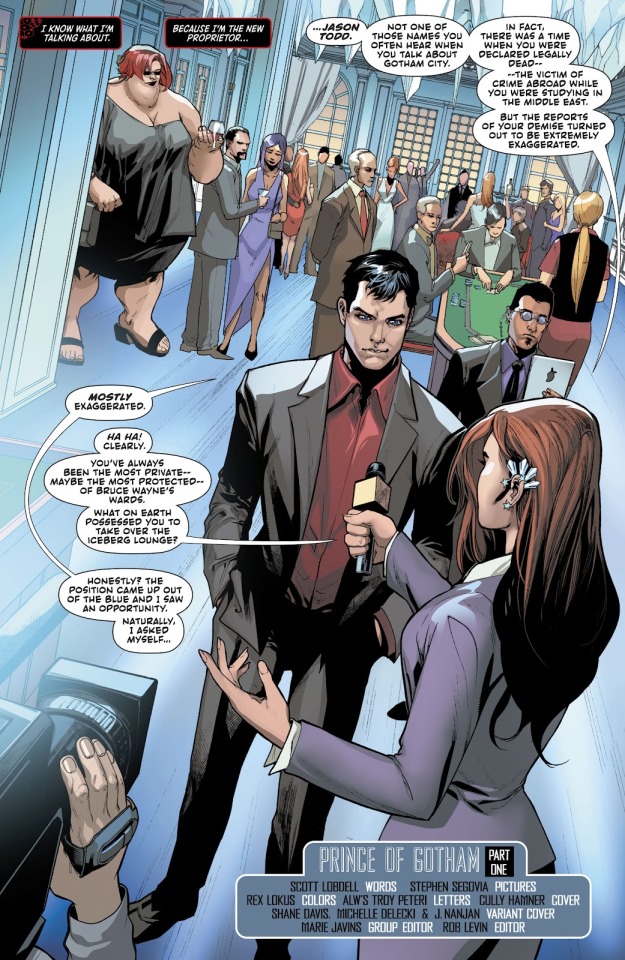
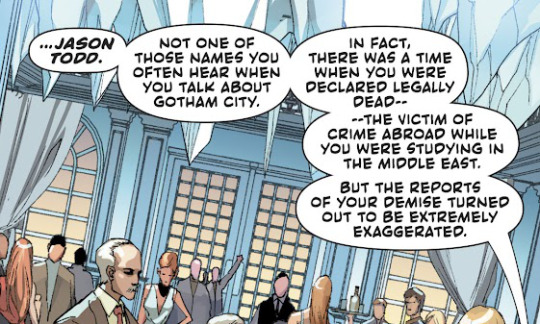
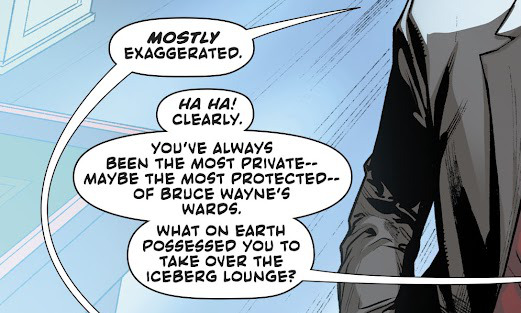
red hood: outlaw (2018) #32
(ID in alt text)
considering that jason todd was the official owner of the iceberg lounge during this time, it's likely he acquired the lounge legally and thus can be inferred that he had to be declared legally alive to do so
which brings me to my point:
i've seen a lot of people writing/speculating the difficulties and limitations jason experiences bc he was declared legally dead after ethiopia, which is all well and good, and is fantastic fodder for angst
but i've been wondering if this was bc people are actively ignoring canon (valid) or simply didn't know that at one point* jason was publicly alive (also valid, bc following comics is a shitshow lol)
please reblog to increase visibility! the whole point of this poll is to gauge how many people know this, so i'd love to see this post reach as many people as possible. thank you~! 😅🙏
(* big disclaimer under the cut!)
note: all of this info is as of may 2023. i am only one human so it's impossible for me to read every comic jason has been in since rhato (2016) and remember every single thing that happened. if anything i said above the cut is incorrect now, i apologize! /o\
for reference, as of creating this poll i've read:
red hood and the outlaws (2016) #1-26
red hood: outlaw (2018) #27-52
task force z (2021) #1-12
batman: urban legends (2021) #1-6 – cheer pt.1-6
the joker: the man who stopped laughing (2022) #3-5
i haven't read a lot of other important runs like death metal (2020), three jokers (2020), robins (2021), etc. if jason (NOT red hood) was declared dead once again in any of those, that is the reason why i used "was" in the very first sentence of this post and reiterate that he was alive at least for a limited period
my bad that i missed his second legal death tho LOLLL
i'm also aware that red hood (NOT jason) was known as "dead" by others after task force z (even though he clearly didn't die). that said, in the little i've read of tj:tmwsl, it seems that 1) not everyone knows red hood is actually alive, and/or that 2) red hood died at all. again, if red hood is generally known to be alive after tfz, that's on me
if there's anything else i've missed, let me know!! i'll update/reblog this post for as long as the poll is up (-u-)b
#red hood#jason todd#red hood and the outlaws#red hood: outlaw#red hood: outlaws#batman#batfam#batfamily#batbros#batbrothers#jayroy#royjay#kylejay#jaykyle#jayrose#jaytemis#dickjay#jaydick#timjay#jaytim#jercy speaks#poll#polls#.i am going to infect the tags bc i need the largest reach possible and i won't apologize for it#.also my answer is in the replies lol
1K notes
·
View notes
Text
Gig apps trap reverse centaurs in Skinner boxes

Enshittification is the process by which digital platforms devour themselves: first they dangle goodies in front of end users. Once users are locked in, the goodies are taken away and dangled before business customers who supply goods to the users. Once those business customers are stuck on the platform, the goodies are clawed away and showered on the platform’s shareholders:
https://pluralistic.net/2023/01/21/potemkin-ai/#hey-guys
If you’d like an essay-formatted version of this post to read or share, here’s a link to it on pluralistic.net, my surveillance-free, ad-free, tracker-free blog:
https://pluralistic.net/2023/04/12/algorithmic-wage-discrimination/#fishers-of-men
Enshittification isn’t just another way of saying “fraud” or “price gouging” or “wage theft.” Enshittification is intrinsically digital, because moving all those goodies around requires the flexibility that only comes with a digital businesses. Jeff Bezos, grocer, can’t rapidly change the price of eggs at Whole Foods without an army of kids with pricing guns on roller-skates. Jeff Bezos, grocer, can change the price of eggs on Amazon Fresh just by twiddling a knob on the service’s back-end.
Twiddling is the key to enshittification: rapidly adjusting prices, conditions and offers. As with any shell game, the quickness of the hand deceives the eye. Tech monopolists aren’t smarter than the Gilded Age sociopaths who monopolized rail or coal — they use the same tricks as those monsters of history, but they do them faster and with computers:
https://doctorow.medium.com/twiddler-1b5c9690cce6
If Rockefeller wanted to crush a freight company, he couldn’t just click a mouse and lay down a pipeline that ran on the same route, and then click another mouse to make it go away when he was done. When Bezos wants to bankrupt Diapers.com — a company that refused to sell itself to Amazon — he just moved a slider so that diapers on Amazon were being sold below cost. Amazon lost $100m over three months, diapers.com went bankrupt, and every investor learned that competing with Amazon was a losing bet:
https://slate.com/technology/2013/10/amazon-book-how-jeff-bezos-went-thermonuclear-on-diapers-com.html
That’s the power of twiddling — but twiddling cuts both ways. The same flexibility that digital businesses enjoy is hypothetically available to workers and users. The airlines pioneered twiddling ticket prices, and that naturally gave rise to countertwiddling, in the form of comparison shopping sites that scraped the airlines’ sites to predict when tickets would be cheapest:
https://pluralistic.net/2023/02/27/knob-jockeys/#bros-be-twiddlin
The airlines — like all abusive businesses — refused to tolerate this. They were allowed to touch their knobs as much as they wanted — indeed, they couldn’t stop touching those knobs — but when we tried to twiddle back, that was “felony contempt of business model,” and the airlines sued:
https://www.cnbc.com/2014/12/30/airline-sues-man-for-founding-a-cheap-flights-website.html
And sued:
https://www.nytimes.com/2018/01/06/business/southwest-airlines-lawsuit-prices.html
Platforms don’t just hate it when end-users twiddle back — if anything they are even more aggressive when their business-users dare to twiddle. Take Para, an app that Doordash drivers used to get a peek at the wages offered for jobs before they accepted them — something that Doordash hid from its workers. Doordash ruthlessly attacked Para, saying that by letting drivers know how much they’d earn before they did the work, Para was violating the law:
https://www.eff.org/deeplinks/2021/08/tech-rights-are-workers-rights-doordash-edition
Which law? Well, take your pick. The modern meaning of “IP” is “any law that lets me use the law to control my competitors, competition or customers.” Platforms use a mix of anticircumvention law, patent, copyright, contract, cybersecurity and other legal systems to weave together a thicket of rules that allow them to shut down rivals for their Felony Contempt of Business Model:
https://locusmag.com/2020/09/cory-doctorow-ip/
Enshittification relies on unlimited twiddling (by platforms), and a general prohibition on countertwiddling (by platform users). Enshittification is a form of fishing, in which bait is dangled before different groups of users and then nimbly withdrawn when they lunge for it. Twiddling puts the suppleness into the enshittifier’s fishing-rod, and a ban on countertwiddling weighs down platform users so they’re always a bit too slow to catch the bait.
Nowhere do we see twiddling’s impact more than in the “gig economy,” where workers are misclassified as independent contractors and put to work for an app that scripts their every move to the finest degree. When an app is your boss, you work for an employer who docks your pay for violating rules that you aren’t allowed to know — and where your attempts to learn those rules are constantly frustrated by the endless back-end twiddling that changes the rules faster than you can learn them.
As with every question of technology, the issue isn’t twiddling per se — it’s who does the twiddling and who gets twiddled. A worker armed with digital tools can play gig work employers off each other and force them to bid up the price of their labor; they can form co-ops with other workers that auto-refuse jobs that don’t pay enough, and use digital tools to organize to shift power from bosses to workers:
https://pluralistic.net/2022/12/02/not-what-it-does/#who-it-does-it-to
Take “reverse centaurs.” In AI research, a “centaur” is a human assisted by a machine that does more than either could do on their own. For example, a chess master and a chess program can play a better game together than either could play separately. A reverse centaur is a machine assisted by a human, where the machine is in charge and the human is a meat-puppet.
Think of Amazon warehouse workers wearing haptic location-aware wristbands that buzz at them continuously dictating where their hands must be; or Amazon drivers whose eye-movements are continuously tracked in order to penalize drivers who look in the “wrong” direction:
https://pluralistic.net/2021/02/17/reverse-centaur/#reverse-centaur
The difference between a centaur and a reverse centaur is the difference between a machine that makes your life better and a machine that makes your life worse so that your boss gets richer. Reverse centaurism is the 21st Century’s answer to Taylorism, the pseudoscience that saw white-coated “experts” subject workers to humiliating choreography down to the smallest movement of your fingertip:
https://pluralistic.net/2022/08/21/great-taylors-ghost/#solidarity-or-bust
While reverse centaurism was born in warehouses and other company-owned facilities, gig work let it make the leap into workers’ homes and cars. The 21st century has seen a return to the cottage industry — a form of production that once saw workers labor far from their bosses and thus beyond their control — but shriven of the autonomy and dignity that working from home once afforded:
https://doctorow.medium.com/gig-work-is-the-opposite-of-steampunk-463e2730ef0d
The rise and rise of bossware — which allows for remote surveillance of workers in their homes and cars — has turned “work from home” into “live at work.” Reverse centaurs can now be chickenized — a term from labor economics that describes how poultry farmers, who sell their birds to one of three vast poultry processors who have divided up the country like the Pope dividing up the “New World,” are uniquely exploited:
https://onezero.medium.com/revenge-of-the-chickenized-reverse-centaurs-b2e8d5cda826
A chickenized reverse centaur has it rough: they must pay for the machines they use to make money for their bosses, they must obey the orders of the app that controls their work, and they are denied any of the protections that a traditional worker might enjoy, even as they are prohibited from deploying digital self-help measures that let them twiddle back to bargain for a better wage.
All of this sets the stage for a phenomenon called algorithmic wage discrimination, in which two workers doing the same job under the same conditions will see radically different payouts for that work. These payouts are continuously tweaked in the background by an algorithm that tries to predict the minimum sum a worker will accept to remain available without payment, to ensure sufficient workers to pick up jobs as they arise.
This phenomenon — and proposed policy and labor solutions to it — is expertly analyzed in “On Algorithmic Wage Discrimination,” a superb paper by UC Law San Franciscos Veena Dubal:
https://papers.ssrn.com/sol3/papers.cfm?abstract_id=4331080
Dubal uses empirical data and enthnographic accounts from Uber drivers and other gig workers to explain how endless, self-directed twiddling allows gig companies pay workers less and pay themselves more. As @[email protected] explains in his LA Times article on Dubal’s research, the goal of the payment algorithm is to guess how often a given driver needs to receive fair compensation in order to keep them driving when the payments are unfair:
https://www.latimes.com/business/technology/story/2023-04-11/algorithmic-wage-discrimination
The algorithm combines nonconsensual dossiers compiled on individual drivers with population-scale data to seek an equilibrium between keeping drivers waiting, unpaid, for a job; and how much a driver needs to be paid for an individual job, in order to keep that driver from clocking out and doing something else.
@
Here’s how that works. Sergio Avedian, a writer for The Rideshare Guy, ran an experiment with two brothers who both drove for Uber; one drove a Tesla and drove intermittently, the other brother rented a hybrid sedan and drove frequently. Sitting side-by-side with the brothers, Avedian showed how the brother with the Tesla was offered more for every trip:
https://www.youtube.com/watch?v=UADTiL3S67I
Uber wants to lure intermittent drivers into becoming frequent drivers. Uber doesn’t pay for an oversupply of drivers, because it only pays drivers when they have a passenger in the car. Having drivers on call — but idle — is a way for Uber to shift the cost of maintaining a capacity cushion to its workers.
What’s more, what Uber charges customers is not based on how much it pays its workers. As Uber’s head of product explained: Uber uses “machine-learning techniques to estimate how much groups of customers are willing to shell out for a ride. Uber calculates riders’ propensity for paying a higher price for a particular route at a certain time of day. For instance, someone traveling from a wealthy neighborhood to another tony spot might be asked to pay more than another person heading to a poorer part of town, even if demand, traffic and distance are the same.”
https://qz.com/990131/uber-is-practicing-price-discrimination-economists-say-that-might-not-be-a-bad-thing/
Uber has historically described its business a pure supply-and-demand matching system, where a rush of demand for rides triggers surge pricing, which lures out drivers, which takes care of the demand. That’s not how it works today, and it’s unclear if it ever worked that way. Today, a driver who consults the rider version of the Uber app before accepting a job — to compare how much the rider is paying to how much they stand to earn — is booted off the app and denied further journeys.
Surging, instead, has become just another way to twiddle drivers. One of Dubal’s subjects, Derrick, describes how Uber uses fake surges to lure drivers to airports: “You go to the airport, once the lot get kind of full, then the surge go away.” Other drivers describe how they use groupchats to call out fake surges: “I’m in the Marina. It’s dead. Fake surge.”
That’s pure twiddling. Twiddling turns gamification into gamblification, where your labor buys you a spin on a roulette wheel in a rigged casino. As a driver called Melissa, who had doubled down on her availability to earn a $100 bonus awarded for clocking a certain number of rides, told Dubal, “When you get close to the bonus, the rides start trickling in more slowly…. And it makes sense. It’s really the type of
shit that they can do when it’s okay to have a surplus labor force that is just sitting there that they don’t have to pay for.”
Wherever you find reverse-centaurs, you get this kind of gamblification, where the rules are twiddled continuously to make sure that the house always wins. As a contract driver Amazon reverse centaur told Lauren Gurley for Motherboard, “Amazon uses these cameras allegedly to make sure they have a safer driving workforce, but they’re actually using them not to pay delivery companies”:
https://www.vice.com/en/article/88npjv/amazons-ai-cameras-are-punishing-drivers-for-mistakes-they-didnt-make
Algorithmic wage discrimination is the robot overlord of our nightmares: its job is to relentlessly quest for vulnerabilities and exploit them. Drivers divide themselves into “ants” (drivers who take every job) and “pickers” (drivers who cherry-pick high-paying jobs). The algorithm’s job is ensuring that pickers get the plum assignments, not the ants, in the hopes of converting those pickers to app-dependent ants.
In my work on enshittification, I call this the “giant teddy bear” gambit. At every county fair, you’ll always spot some poor jerk carrying around a giant teddy-bear they “won” on the midway. But they didn’t win it — not by getting three balls in the peach-basket. Rather, the carny running the rigged game either chose not to operate the “scissor” that kicks balls out of the basket. Or, if the game is “honest” (that is, merely impossible to win, rather than gimmicked), the operator will make a too-good-to-refuse offer: “Get one ball in and I’ll give you this keychain. Win two keychains and I’ll let you trade them for this giant teddy bear.”
Carnies aren’t in the business of giving away giant teddy bears — rather, the gambit is an investment. Giving a mark a giant teddy bear to carry around the midway all day acts as a convincer, luring other marks to try to land three balls in the basket and win their own teddy bear.
In the same way, platforms like Uber distribute giant teddy bears to pickers, as a way of keeping the ants scurrying from job to job, and as a way of convincing the pickers to give up whatever work allows them to discriminate among Uber’s offers and hold out for the plum deals, whereupon then can be transmogrified into ants themselves.
Dubal describes the experience of Adil, a Syrian refugee who drives for Uber in the Bay Area. His colleagues are pickers, and showed him screenshots of how much they earned. Determined to get a share of that money, Adil became a model ant, driving two hours to San Francisco, driving three days straight, napping in his car, spending only one day per week with his family. The algorithm noticed that Adil needed the work, so it paid him less.
Adil responded the way the system predicted he would, by driving even more: “My friends they make it, so I keep going, maybe I can figure
it out. It’s unsecure, and I don’t know how people they do it. I don’t know how I am doing it, but I have to. I mean, I don’t
find another option. In a minute, if I find something else, oh man, I will be out immediately. I am a very patient person, that’s why I can continue.”
Another driver, Diego, told Dubal about how the winners of the giant teddy bears fell into the trap of thinking that they were “good at the app”: “Any time there’s some big shot getting high pay outs, they always shame everyone else and say you don’t know how to use the app. I think there’s secret PR campaigns going on that gives targeted payouts to select workers, and they just think it’s all them.”
That’s the power of twiddling: by hoarding all the flexibility offered by digital tools, the management at platforms can become centaurs, able to string along thousands of workers, while the workers are reverse-centaurs, puppeteered by the apps.
As the example of Adil shows, the algorithm doesn’t need to be very sophisticated in order to figure out which workers it can underpay. The system automates the kind of racial and gender discrimination that is formally illegal, but which is masked by the smokescreen of digitization. An employer who systematically paid women less than men, or Black people less than white people, would be liable to criminal and civil sanctions. But if an algorithm simply notices that people who have fewer job prospects drive more and will thus accept lower wages, that’s just “optimization,” not racism or sexism.
This is the key to understanding the AI hype bubble: when ghouls from multinational banks predict 13 trillion dollar markets for “AI,” what they mean is that digital tools will speed up the twiddling and other wage-suppression techniques to transfer $13T in value from workers and consumers to shareholders.
The American business lobby is relentlessly focused on the goal of reducing wages. That’s the force behind “free trade,” “right to work,” and other codewords for “paying workers less,” including “gig work.” Tech workers long saw themselves as above this fray, immune to labor exploitation because they worked for a noble profession that took care of its own.
But the epidemic of mass tech-worker layoffs, following on the heels of massive stock buybacks, has demonstrated that tech bosses are just like any other boss: willing to pay as little as they can get away with, and no more. Tech bosses are so comfortable with their market dominance and the lock-in of their customers that they are happy to turn out hundreds of thousands of skilled workers, convinced that the twiddling systems they’ve built are the kinds of self-licking ice-cream cones that are so simple even a manager can use them — no morlocks required.
The tech worker layoffs are best understood as an all-out war on tech worker morale, because that morale is the source of tech workers’ confidence and thus their demands for a larger share of the value generated by their labor. The current tech layoff template is very different from previous tech layoffs: today’s layoffs are taking place over a period of months, long after they are announced, and laid off tech worker is likely to be offered a months of paid post-layoff work, rather than severance. This means that tech workplaces are now haunted by the walking dead, workers who have been laid off but need to come into the office for months, even as the threat of layoffs looms over the heads of the workers who remain. As an old friend, recently laid off from Microsoft after decades of service, wrote to me, this is “a new arrow in the quiver of bringing tech workers to heel and ensuring that we’re properly thankful for the jobs we have (had?).”
Dubal is interested in more than analysis, she’s interested in action. She looks at the tactics already deployed by gig workers, who have not taken all this abuse lying down. Workers in the UK and EU organized through Worker Info Exchange and the App Drivers and Couriers Union have used the GDPR (the EU’s privacy law) to demand “algorithmic transparency,” as well as access to their data. In California, drivers hope to use similar provisions in the CCPA (a state privacy law) to do the same.
These efforts have borne fruit. When Cornell economists, led by Louis Hyman, published research (paid for by Uber) claiming that Uber drivers earned an average of $23/hour, it was data from these efforts that revealed the true average Uber driver’s wage was $9.74. Subsequent research in California found that Uber drivers’ wage fell to $6.22/hour after the passage of Prop 22, a worker misclassification law that gig companies spent $225m to pass, only to have the law struck down because of a careless drafting error:
https://www.latimes.com/california/newsletter/2021-08-23/proposition-22-lyft-uber-decision-essential-california
But Dubal is skeptical that data-coops and transparency will achieve transformative change and build real worker power. Knowing how the algorithm works is useful, but it doesn’t mean you can do anything about it, not least because the platform owners can keep touching their knobs, twiddling the payout schedule on their rigged slot-machines.
Data co-ops start from the proposition that “data extraction is an inevitable form of labor for which workers should be remunerated.” It makes on-the-job surveillance acceptable, provided that workers are compensated for the spying. But co-ops aren’t unions, and they don’t have the power to bargain for a fair price for that data, and coops themselves lack the vast resources — “to store, clean, and understand” — data.
Co-ops are also badly situated to understand the true value of the data that is extracted from their members: “Workers cannot know whether the data collected will, at the population level, violate the civil rights of others or amplifies their own social oppression.”
Instead, Dubal wants an outright, nonwaivable prohibition on algorithmic wage discrimination. Just make it illegal. If
firms cannot use gambling mechanisms to control worker behavior through variable pay systems, they will have to find ways to maintain flexible
workforces while paying their workforce predictable wages under an employment model. If a firm cannot manage wages through digitally-determined variable pay systems, then the firm is less likely to employ algorithmic management.”
In other words, rather than using market mechanisms too constrain platform twiddling, Dubal just wants to make certain kinds of twiddling illegal. This is a growing trend in legal scholarship. For example, the economist Ramsi Woodcock has proposed a ban on surge pricing as a per se violation of Section 1 of the Sherman Act:
https://ilr.law.uiowa.edu/print/volume-105-issue-4/the-efficient-queue-and-the-case-against-dynamic-pricing
Similarly, Dubal proposes that algorithmic wage discrimination violates another antitrust law: the Robinson-Patman Act, which “bans sellers from charging competing buyers different prices for the same commodity. Robinson-Patman enforcement was effectively halted under Reagan, kicking off a host of pathologies, like the rise of Walmart:
https://pluralistic.net/2023/03/27/walmarts-jackals/#cheater-sizes
I really liked Dubal’s legal reasoning and argument, and to it I would add a call to reinvigorate countertwiddling: reforming laws that get in the way of workers who want to reverse-engineer, spoof, and control the apps that currently control them. Adversarial interoperability (AKA competitive compatibility or comcom) is key tool for building worker power in an era of digital Taylorism:
https://www.eff.org/deeplinks/2019/10/adversarial-interoperability
To see how that works, look to other jursidictions where workers have leapfrogged their European and American cousins, such as Indonesia, where gig workers and toolsmiths collaborate to make a whole suite of “tuyul apps,” which let them override the apps that gig companies expect them to use.
https://pluralistic.net/2021/07/08/tuyul-apps/#gojek
For example, ride-hailing companies won’t assign a train-station pickup to a driver unless they’re circling the station — which is incredibly dangerous during the congested moments after a train arrives. A tuyul app lets a driver park nearby and then spoof their phone’s GPS fix to the ridehailing company so that they appear to be right out front of the station.
In an ideal world, those workers would have a union, and be able to dictate the app’s functionality to their bosses. But workers shouldn’t have to wait for an ideal world: they don’t just need jam tomorrow — they need jam today. Tuyul apps, and apps like Para, which allow workers to extract more money under better working conditions, are a prelude to unionization and employer regulation, not a substitute for it.
Employers will not give workers one iota more power than they have to. Just look at the asymmetry between the regulation of union employees versus union busters. Under US law, employees of a union need to account for every single hour they work, every mile they drive, every location they visit, in public filings. Meanwhile, the union-busting industry — far larger and richer than unions — operate under a cloak of total secrecy, Workers aren’t even told which union busters their employers have hired — let alone get an accounting of how those union busters spend money, or how many of them are working undercover, pretending to be workers in order to sabotage the union.
Twiddling will only get an employer so far. Twiddling — like all “AI” — is based on analyzing the past to predict the future. The heuristics an algorithm creates to lure workers into their cars can’t account for rapid changes in the wider world, which is why companies who relied on “AI” scheduling apps (for example, to prevent their employees from logging enough hours to be entitled to benefits) were caught flatfooted by the Great Resignation.
Workers suddenly found themselves with bargaining power thanks to the departure of millions of workers — a mix of early retirees and workers who were killed or permanently disabled by covid — and they used that shortage to demand a larger share of the fruits of their labor. The outraged howls of the capital class at this development were telling: these companies are operated by the kinds of “capitalists” that MLK once identified, who want “socialism for the rich and rugged individualism for the poor.”
https://twitter.com/KaseyKlimes/status/821836823022354432/
There's only 5 days left in the Kickstarter campaign for the audiobook of my next novel, a post-cyberpunk anti-finance finance thriller about Silicon Valley scams called Red Team Blues. Amazon's Audible refuses to carry my audiobooks because they're DRM free, but crowdfunding makes them possible.

Image:
Stephen Drake (modified)
https://commons.wikimedia.org/wiki/File:Analog_Test_Array_modular_synth_by_sduck409.jpg
CC BY 2.0
https://creativecommons.org/licenses/by/2.0/deed.en
—
Cryteria (modified)
https://commons.wikimedia.org/wiki/File:HAL9000.svg
CC BY 3.0
https://creativecommons.org/licenses/by/3.0/deed.en
—
Louis (modified)
https://commons.wikimedia.org/wiki/File:Chestnut_horse_head,_all_excited.jpg
CC BY-SA 2.0
https://creativecommons.org/licenses/by-sa/2.0/deed.en
[Image ID: A complex mandala of knobs from a modular synth. In the foreground, limned in a blue electric halo, is a man in a hi-viz vest with the head of a horse. The horse's eyes have been replaced with the sinister red eyes of HAL9000 from Kubrick's '2001: A Space Odyssey.'"]
#pluralistic#great resignation#twiddler#countertwiddling#wage discrimination#algorithmic#scholarship#doordash#para#Veena Dubal#labor#brian merchant#app boss#reverse centaurs#skinner boxes#enshittification#ants vs pickers#tuyul#steampunk#cottage industry#ccpa#gdpr#App Drivers and Couriers Union#shitty technology adoption curve#moral economy#gamblification#casinoization#taylorization#taylorism#giant teddy bears
3K notes
·
View notes
